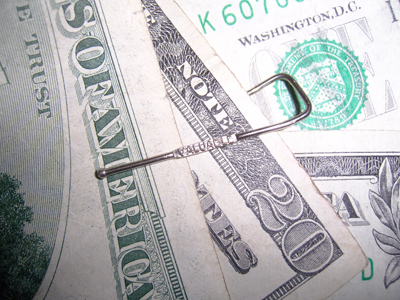All Nonfiction
- Bullying
- Books
- Academic
- Author Interviews
- Celebrity interviews
- College Articles
- College Essays
- Educator of the Year
- Heroes
- Interviews
- Memoir
- Personal Experience
- Sports
- Travel & Culture
All Opinions
- Bullying
- Current Events / Politics
- Discrimination
- Drugs / Alcohol / Smoking
- Entertainment / Celebrities
- Environment
- Love / Relationships
- Movies / Music / TV
- Pop Culture / Trends
- School / College
- Social Issues / Civics
- Spirituality / Religion
- Sports / Hobbies
All Hot Topics
- Bullying
- Community Service
- Environment
- Health
- Letters to the Editor
- Pride & Prejudice
- What Matters
- Back
Summer Guide
- Program Links
- Program Reviews
- Back
College Guide
- College Links
- College Reviews
- College Essays
- College Articles
- Back
Money and School
According to Education Weekly, over 3 million United States high school students drop out every year. That means that about 8,300 students drop out daily. There could be a variety of motives for dropping out of school. Money is one major motive. Schools, such as Denver's Abraham Lincoln High School, believe that money is one way to motivate students. They give students a certain amount of money based on their performance on one certain assignment that they were given. This strategy seems to work, up to a certain point.
According to a study done in 250 random schools in the United States by Roland Fryer, an American economist and the Robert M. Beren Professor of Economics at Harvard University, it was found that it increased the average GPA but it did not increase the average test scores. Students were working hard just to get money.
“I would perform to the best of my ability. I would be in competition with my classmates every day,” said Wesley Vasquez, a sophomore at the NYC iSchool. “I would have carpal tunnel from working so hard.”
Students are motivated to work hard for money but they are not learning enough to keep up with the national education standards, if test scores are any indication. The end goal for using money as an incentive was to motivate students to work harder in order to achieve better test scores which did not happen.
“ I think that using money to motivate high school students can sometimes be effective, but that doesn't always mean that it's a good idea,” said Alexandra Usher, a Graduate Research Assistant at The University of Chicago who, in 2012, wrote a series of papers on student motivation titled, “Student Motivation: An Overlooked Piece of School Reform”, “But even if we could pay students to perform better in their classes, there is some research evidence that rewarding someone for doing something they enjoy or are intrinsically motivated to do can actually decrease their motivation for doing that activity once the reward is gone.”
High school students that lack the motivation to do work in school now have an alternative way to make money.
High school students used to have to work odd jobs in order to make some money for lunch, but students have found a unique way to make large sums of money quickly. They no longer have to get an actual job for money.
By reselling sneakers with limited releases, they have the ability to gain a profit of thousands of dollars. One example would the Nike Air Yeezy 2, a sneaker designed by Kanye West and released through Nike. If a student were able to purchase this sneaker for retail price ($245), he would've been able to sell it on Ebay for about $2000. They would have made a $1755 profit. This is based on the average price for which the Nike Air Yeezy 2 resold for. This would only take a couple of hours from their day. An example of how easy it is for a high school student to get money is Michael Szydelko was able to buy a $32 t-shirt from Supreme, a brand known for having limited releases on their clothing, and sell it for $115. That is almost 4 times as much as he originally paid for the t-shirt.
Achieving financial success outside of school has the potential to lead to dropping out. However students seem to not be affected by it.
“I don't think it would make me less motivated to get a 95 on the test because I still have the same goal. I'm doing well on the test so I can do well for myself,” said Michael Szydelko, a sophomore student at the NYC iSchool who has the ability to get rare pieces of clothing. “ I don't think the money would make a difference for me.”
Vasquez had a different answer. Vasquez, who resells Jordan sneakers, said, “Kind of. I would be less pressured. I could get an 85-90 and still make money on the side.”
This shows us that these students are not affected by the option of making money through selling sneakers and clothing. High school students recognize the fact that not finishing high school would be detrimental to their success.
“ Failing to graduate high school also severely limits opportunities later in life,” said Usher. “... what they don't realize is the huge impact on lifetime earnings that comes with failing to earn a high school diploma.”
High school students seem to believe that finishing high school is a vital part of their lives. This could be one reason why the dropout rate is steadily declining.
Alternative ways to make fast money does not seem to affect high school students. If schools were to pay students, it would motivate to get work done but only in certain circumstances would it help bring test scores up.

Similar Articles
JOIN THE DISCUSSION
This article has 0 comments.
